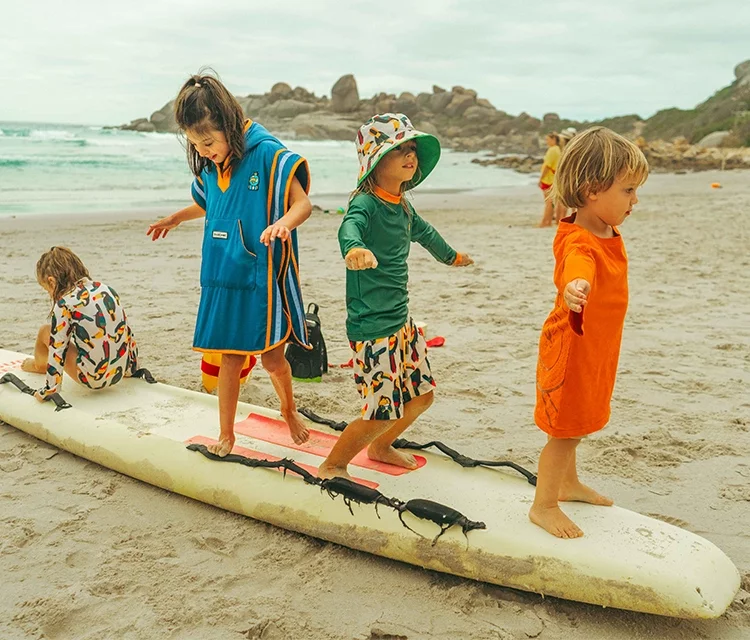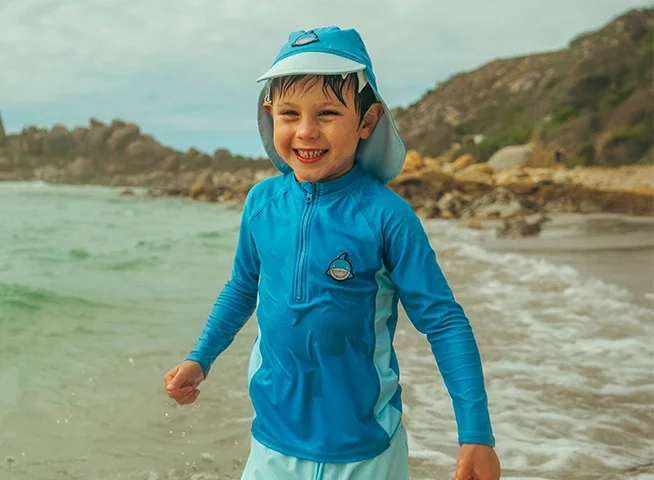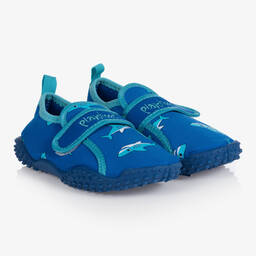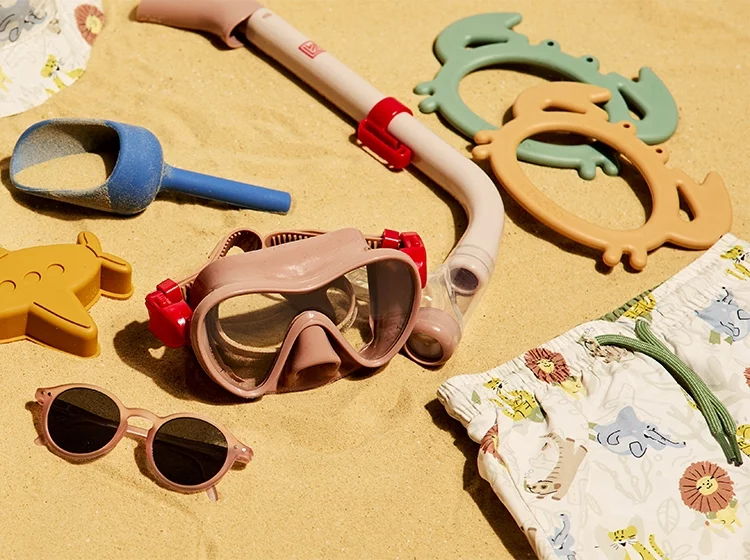
الحفاظ على سلامة الطفل على الشاطئ
الشاطئ يعد من أجمل الوجهات لقضاء وقت ممتع مع العائلة. وهناك الكثير من الطرق للاستمتاع بالرمال والبحر على الشاطئ، بدءا من من بناء قلاع رملية وحتى ركل الأمواج والسباحة. ولكن في البداية من المهم التأكد من توفير الحماية اللازمة لأطفالكم على شاطئ البحر.
نقدم لكم أفضل خمس نصائح للحفاظ على سلامتكم وسلامة أطفالكم على الشاطئ، بدءا من اختيار الأماكن التي يتواجد بها منقذ سباحة وفهم الأعلام المختلفة وحتى تحديد مكان مناسب للالتقاء.
1- التحقق من وجود منقذين
قبل الذهاب إلى الشاطئ، يُنصح دائما بالتأكد من وجود منقذين لمراقبة السباحين. وإذا كنتم تقضون عطلتكم في المملكة المتحدة، يمكنكم التخطيط مُسبقا والتحقق باستخدام هذه الأداة السهلة من المؤسسة الملكية الوطنية لقوارب النجاة. يعمل المنقذون في ساعات مُحددة فقط من اليوم، فاختاروا التوقيت الذي يتوافق مع نوبات عملهم. وإذا كان الشاطئ غير مُراقب بالمنقذين، فعليكم وضع قواعد وحدود خاصة بعائلتكم. فيجب أن يبدأ أحد الوالدين بفحص المنطقة والمياه، وإخبار جميع أفراد العائلة عند عودته بكل المخاطر التي قد تثير القلق على الشاطئ.

2- تعرفوا على الأعلام
عند الذهاب إلى الشاطئ، ستشاهدون أعلاما ولافتات مصممة لتوضيح مدى أمان المياه والتحذير من أي مخاطر محتملة. تأكدوا من البحث عن معاني الأعلام مسبقا، ويمكنكم أيضا اختبار جميع أفراد العائلة عند وصولكم إلى الشاطئ (ومن يتوصل إلى الإجابة الصحيحة، يحصل على الآيس كريم). تذكروا أن ألوان الأعلام تختلف من دولة لأخرى ومن منطقة لأخرى.
ونقدم لكم هذا الدليل للشواطئ في المملكة المتحدة، لمساعدتكم في فهم ألوان الأعلام:
الأحمر والأصفر: يشير هذان اللونان إلى وجود منقذين في المنطقة ما بين العلمين، أو وجود منقذ واحد على الأقل. وهذا المكان هو الأكثر أمانا للسباحة والتزلج على الأمواج.
مربعات الأبيض والأسود: تُشير هذه الأعلام إلى منطقة مُخصصة لراكبي الأمواج وألواح التجديف، وغيرها من الرياضات البحرية التي لا تتطلب محركات. وهي ليست آمنة للسباحة.
الأحمر: عندما ترى هذا العلم على الشاطئ، فهذا يعني أن دخول الماء خطير جدا. حافظ على سلامتك وابتعد عن البحر.
مؤشر الرياح البرتقالي: يشير هذا العلم المميز إلى وجود رياح قوية وبالتالي لا يُسمح باستخدام الألعاب القابلة للنفخ في المياه ويجب توخي الحذر عند دخول البحر.
مغامرات الرمال
عندما يكون البحر هائجا أو مضطربا، أو عندما لا يكون الصغار مستعدين بعد للسباحة، فإن الرمال توفر لهم الكثير من المرح

3- تحققوا من أوقات المد والجزر
قد يرتفع المد بسرعة مفاجئة وبارتفاعات مختلفة، وفي كثير من الأحيان قد يفاجئ مرتادي الشاطئ. كونوا مستعدين قدر الإمكان بمراجعة لوحات المعلومات عند وصولكم إلى الشاطئ. سيسمح لكم هذا باختيار أفضل مكان للجلوس على الشاطئ والمدة المتاحة للاستمتاع بالشاطئ قبل ارتفاع المد.
الألوان الزاهية
اختيار ملابس سباحة أو ملابس شاطئ بألوان زاهية وجريئة سيساعد على رؤية الصغار بسهولة في الشواطئ المزدحمة
4- تحديد نقطة التقاء
عندما يكون الشاطئ مزدحما، خاصة خلال العطلات المدرسية، من المهم التحدث مع أطفالكم قبل الذهاب إلى الشاطئ عن ضرورة البقاء معا وعدم المشي أو السباحة بعيدا عن الأنظار. وبمجرد وصولكم إلى الشاطئ، اتفقوا على نقطة الالتقاء، مثل محطة الإنقاذ، في حالة الانفصال عن الأطفال. بعض الشواطئ توفر برنامجا لسلامة الأطفال، باستخدام أساور المعصم أو التذاكر، وينصح بالاستفادة من هذا النظام، إذا كان متوفرا


5- ابحثوا عن مكان قريب من الظل
الشواطئ المشمسة تبدو جذابة، ولكن إذا لم تجدوا مكانا مظللا، سيشعر الأطفال بالحرّ والضيق. خططوا مسبقا للتأكد من اصطحاب خيمة شاطئ ومظلات لتوفير الظل للعائلة. ونفضل الخيام لأنها خفيفة الوزن وسهلة التركيب والطي ولهذا تعتبر مثالية للشاطئ. وننصح أيضا باختيار ملابس واقية من الشمس للأطفال وتشجيعهم على ارتداء قبعة_شمس لحمايتهم من أشعة الشمس الضارة.
استمتعوا بالمياه الزرقاء
اكتشفوا ملابس سباحة بأكمام طويلة وبناطيل لتغطية الساقين والذراعين، بالإضافة إلى التصاميم المصنوعة من أقمشة واقية من أشعة الشمس بعامل حماية UPF50+












